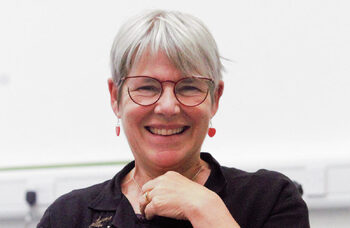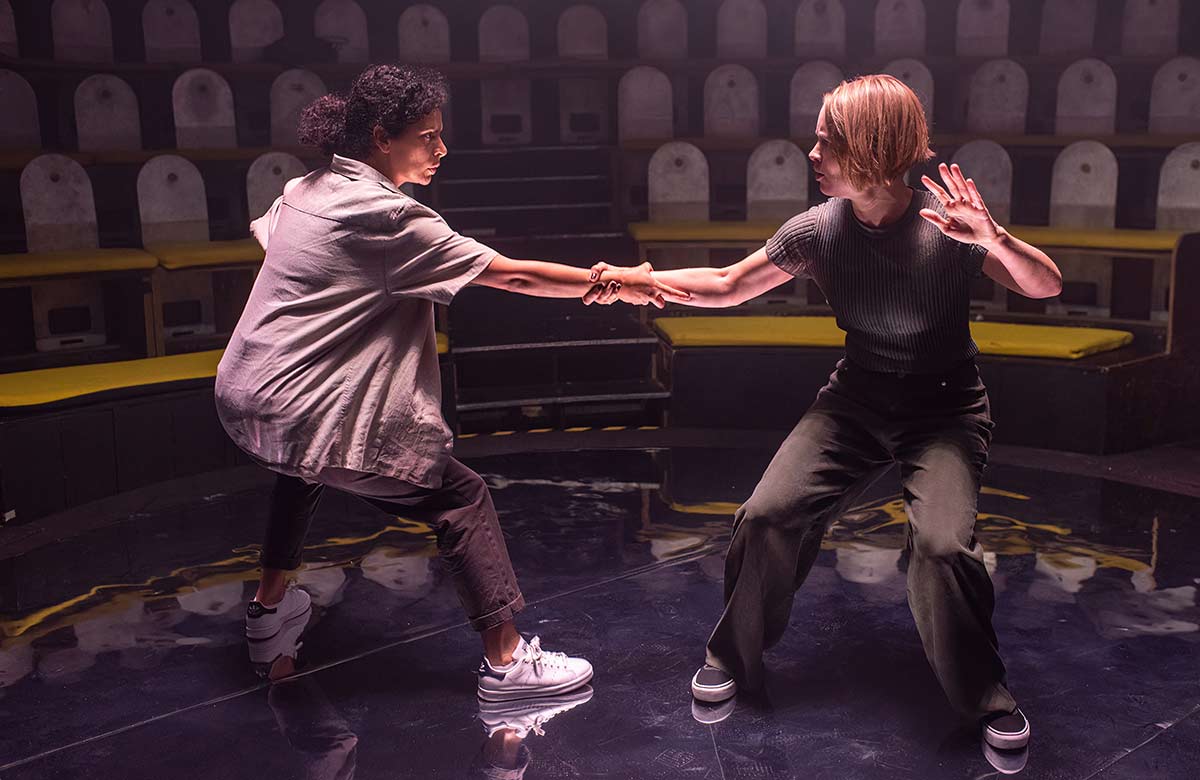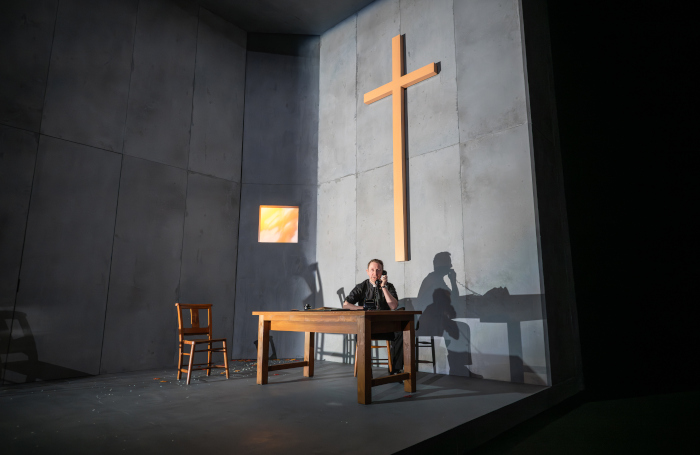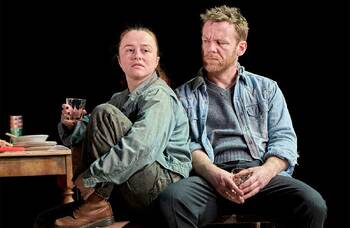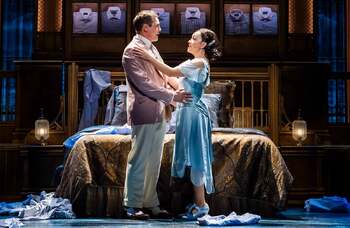James IV: Queen of the Fight review
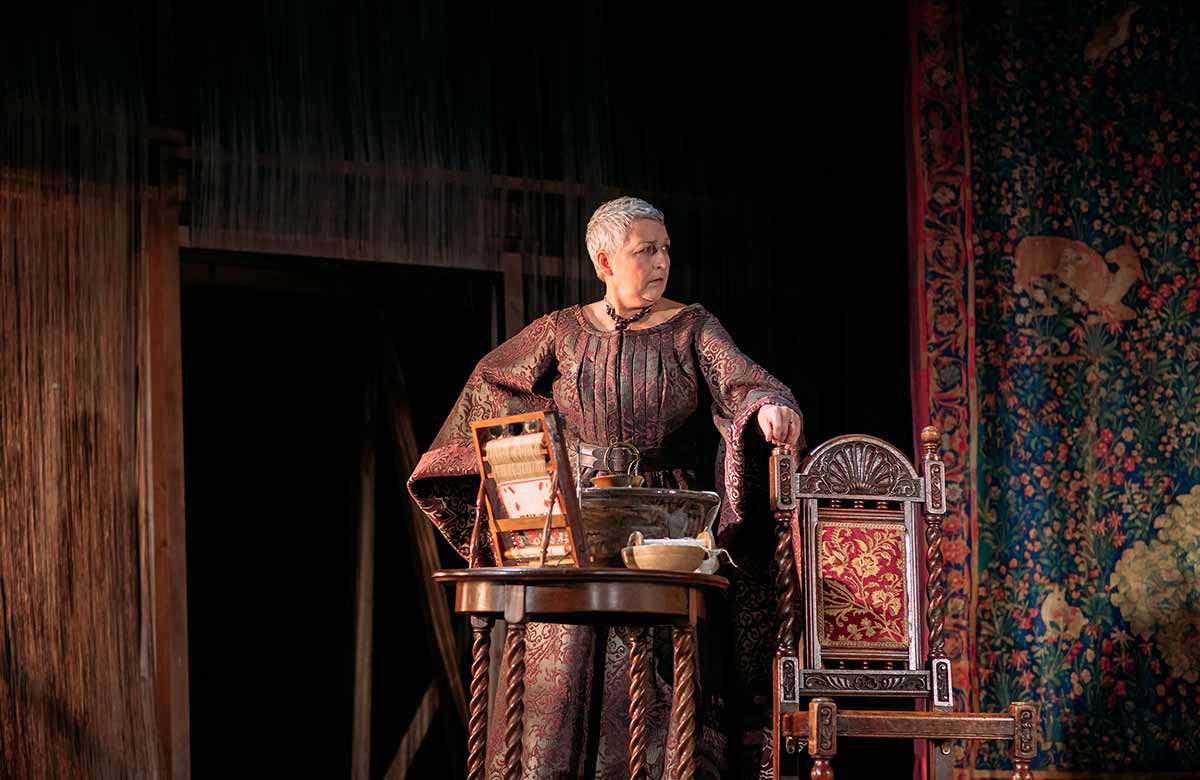
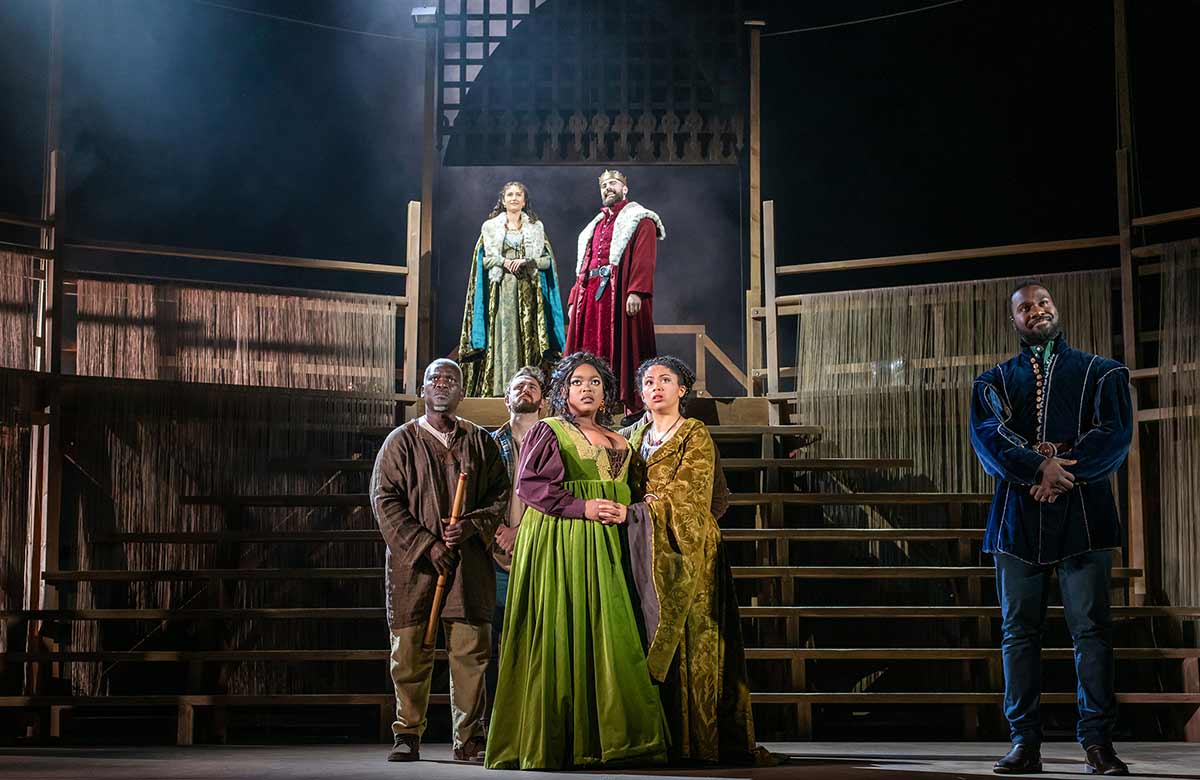
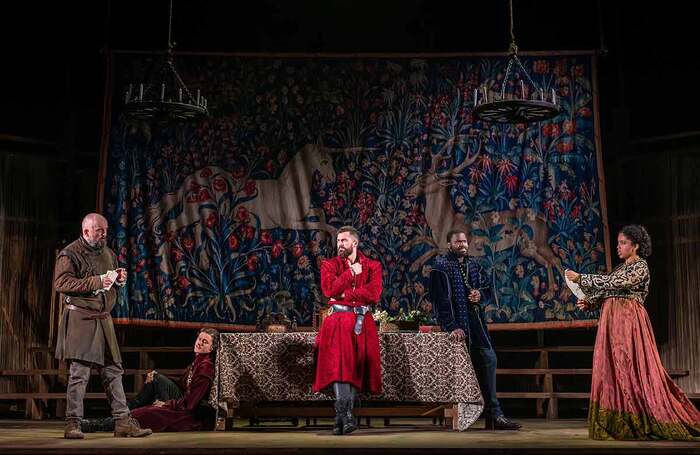
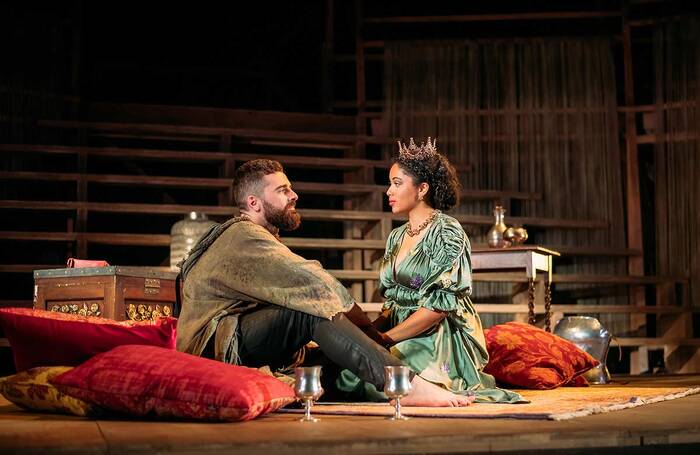




An intriguing and enjoyable fourth instalment of Rona Munro’s Scottish history cycle
This is the month of Rona Munro. After a revival of her 1990 classic Bold Girls opened Cumbernauld Theatre last week, two new works premiere in quick succession, both part of her epic history cycle that began with James I, James II and James III in 2014. Mary – focusing on the Queen of Scots – opens at Hampstead Theatre soon, but first comes James IV: Queen of the Fight, which kicks off a six-stop Scottish tour.
This fourth instalment – Mary is the sixth, with the to-be-produced James V the fifth, and James VI the seventh – broadly follows the format of its predecessors. It throws the audience into the riotous, rollicking court of James IV, who ruled Scotland from 1488 to 1513. This milieu abounds with curious, colourful characters – Sarita Gabony’s petulant and pregnant Queen Margaret and Keith Fleming’s despairing Makar Dunbar among them – and it’s cosmopolitan, too: English, Scots, French and Spanish flow freely from the tongues of its courtiers.
The narrative follows the fortunes of two outsiders: women from Bilbao destined for the court of Henry VII of England but stolen while in transit. One, Lady Anne, becomes a maid to Queen Margaret. The other, Ellen, is first a court entertainer, then mistress to King James himself. Historical evidence shows that Moorish women did make it to Scotland in the 16th century: Munro compellingly reimagines the stormy seas they once faced.
Laurie Sansom, who staged the first three instalments as former chief of the National Theatre of Scotland, returns to direct this co-production between Glasgow-based production company Raw Material and Edinburgh’s Capital Theatres. His staging smoothly slides from epic to intimate, as does Jon Bausor’s set – an enormous wooden amphitheatre with great banners and tapestries descending from the flies. Lizzie Powell’s lighting bathes everything in a golden glow.
Paul Leonard-Morgan’s music stirs, the fight scenes are thrilling and there are fine performances from the 11-strong cast. Daniel Cahill is a likeably laddish James, Blythe Duff withering as Dame Phemy, keeper of the king’s household, and Danielle Jam a superbly sympathetic Ellen.
The James Plays are inevitably seen as Scotland’s answer to Shakespeare’s cycle of history plays – and, although Munro is uncomfortable with the comparison, it’s valid. The similarities, particularly to Henry V, are there in the scope of her script, the cross-section of courtly society she presents and in the flashes of humour that illuminate the evening. Most of all, they are in the play’s questing contemplation of royal and national identity, then and now. A touch more political intrigue would have added texture, but this is a fun and fascinating riposte to Shakespeare – and that is quite the compliment, whether Munro likes it or not.
More Reviews
More Reviews
Recommended for you
Most Read
Across The Stage this weekYour subscription helps ensure our journalism can continue
Invest in The Stage today with a subscription starting at just £7.99
